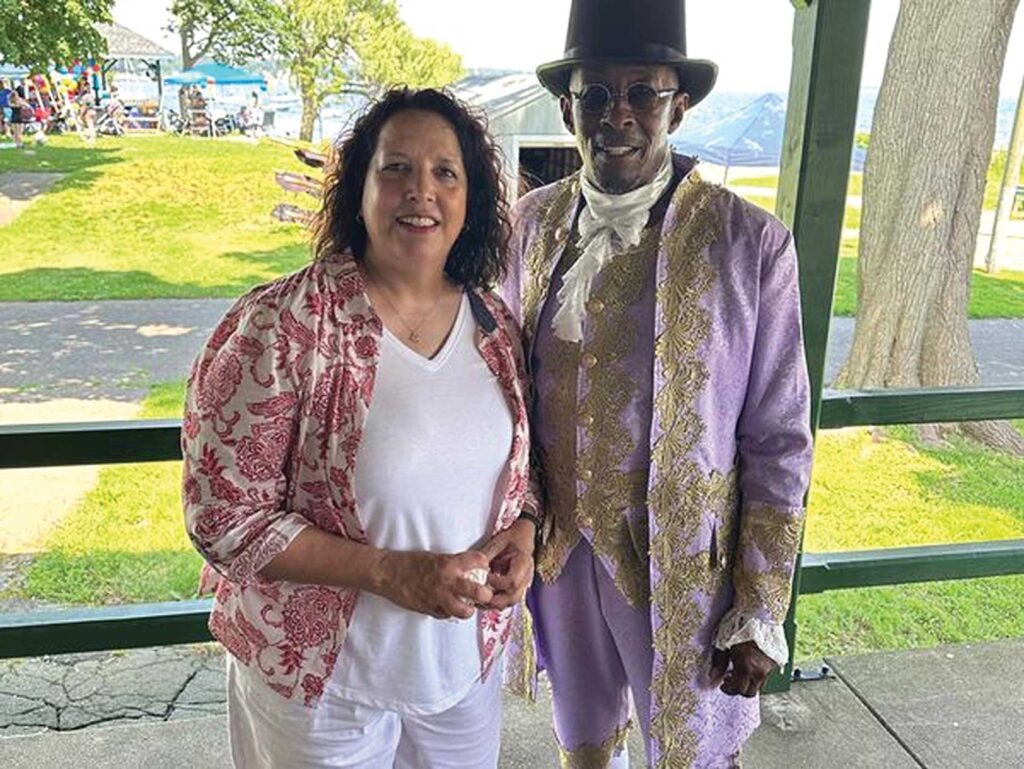Salem celebrates first official ‘Negro Election Day’
Event draws 5,000 for ‘the Black Picnic’

The Massachusetts Legislature passed a law last year declaring the third Saturday of July “Negro Election Day.” Last Saturday, about 5,000 people gathered in Salem to celebrate with a parade from Shetland Park to Salem Willows Park and speeches, vendors, music, entertainment and food.
Black families in Massachusetts and beyond traditionally gather at Salem Willows each year on the third Saturday of July to celebrate what until recently was commonly referred to as “the Black Picnic.” But most didn’t know the history behind the event.
Recent research reveals that the tradition was first established in 1741 as the first Black governing system in the country and called Negro Election Day.
“The event has been held for 283 years, and everybody doesn’t understand what it is — why Black people first went to Salem Willows,” said Doreen Wade, president and founder of Salem United Inc., a nonprofit devoted to preserving Black history and the host of the first official celebration of the state holiday.
Credited for raising awareness of Negro Election Day to Beacon Hill lawmakers, Wade said free and enslaved African Americans got together and elected a leader from their ranks. Sometimes holding the title of king or governor, the elected leader was expected to settle issues within his community and, in certain circumstances, serve as a liaison to white leadership.
Black people had initially assembled on Boston Common to hold their elections, but whites — afraid of potential Black political power — passed a law prohibiting them from meeting there, Wade said.
“All the people who met at Boston Common got on barges and sailed over to Salem, because it was on the waterfront,” she added.
Asked whether Massachusetts residents get the new state holiday off, she replied that there are two ways to establish a state holiday: “It could be [one in which] everybody is off that day, but we didn’t do it that way. We established it as a holiday that preserves and protects Black history. It has nothing to do with who has what day off.”
State Sen. Joan Lovely wrote and co-sponsored the bill establishing the state holiday. She represents Beverly, Danvers, Peabody, Salem and Topsfield. In recognition of her efforts, Lt. Gov. Kim Driscoll, a former mayor of Salem, presented her with a governor’s citation at the event.
State Rep. Paul F. Tucker of Salem, the city’s former police chief, co-sponsored the bill.
The parade on July 15 began at noon. The rest of the day was full of fun and family entertainment.
“We had a parade. We had the Salem Police, the Essex County Sheriff’s Office, the U.S.S. Constitution, the League of Women Voters and the Massachusetts Latino Police Association. We had many people come out to support what we were doing,” Wade said. “I want to praise the Buffalo Soldiers, the Step into Culture Dance Group and everybody who came out as an organization to support the celebration.”
Although she would have liked to have seen more Black people there on Saturday, Wade said, “We had a huge turnout. I feel that the event was a success.”






